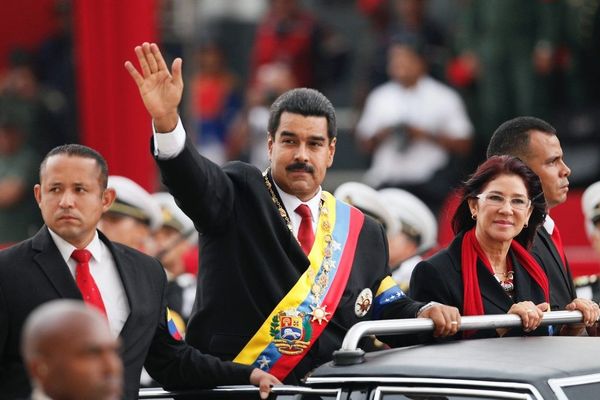One of the key responsibilities of the Intelligence Community is to provide the president with the other guy’s perspective. How does he/she see the world and the issues? What is the person’s mindset, where does it come from, and can it be changed? It is difficult, if not impossible, to craft a successful foreign policy without good answers to these questions.
So, how does North Korean leader Kim Jong-un see the world? It is this question that is at the heart of the interesting last paragraph of an August 13th Op-Ed in the Wall Street Journal, co-authored by Secretary of Defense James Mattis and Secretary of State Rex Tillerson. That paragraph read, in part, “North Korea now faces a choice. Take a new path toward peace, prosperity, and international acceptance, or continue further down the dead alley of belligerence, poverty, and isolation.”
The choice, as so clearly outlined by Mattis and Tillerson, seems straightforward, even easy. Why would anyone choose poverty and isolation over prosperity and international acceptance? Why would anyone choose a “dead alley” over a “new path?” Why doesn’t Kim make the obvious choice? Why doesn’t he see that denuclearization would be good for North Korea?
The answer is that Kim does not see the world the way we do. In Kim’s world, his current approach – Mattis and Tillerson’s “dead alley” – is by far the more attractive option. Indeed, Kim does not see the “new path” as the opportunity we do. Rather, he sees it as a trap.
Kim holds two beliefs that lead him to these conclusions. First, Kim believes that the U.S. is intent on removing him and his regime from power and reuniting the Korean Peninsula on South Korea’s terms. This is not true, but that is what he believes – driven by paranoia and misperceptions of U.S. and South Korean actions.
It is this belief that led his father and now him to pursue nuclear weapons and the ability to deliver them to the U.S. homeland. Kim sees this capability as the ultimate deterrent against a U.S. attempt to overthrow him. In his mind, the North’s strategic weapons capability says to the U.S., “If you move against me, I can bring unimaginable devastation upon you. So, don’t mess with me.” To Kim, the “dead alley,” is essential, and no amount of economic sanctions is likely to change that.
The response of U.S. diplomats to this analysis of Kim’s thinking is, “I understand. We only need to change his mind about U.S. intentions. We only need to convince him that we are not the threat he thinks we are.” But that is easier said than done. How do we convince Kim of that – particularly after U.S. military action in Serbia, Iraq, and Libya (by three different presidents) removed leaders from power, all without nuclear weapons to defend them.
But since the history of intelligence analysis is littered with examples of analysts telling diplomats what they could not accomplish, only to have them accomplish it, let’s assume that we can convince Kim that we are not a threat. Let’s assume that we can convince him that he does not need to go down the “dead alley” in order to protect himself. This is where Kim’s second key belief comes into play.
Kim also believes that his own politics require that North Korea have an enemy, and that it remain closed to the outside world. He needs an enemy because it is the way he justifies to his people the sacrifices that he asks them to make. And he needs to keep his country closed because he fears that an opening would result in his people seeing the enormous gaps that exist between North Korea and virtually everywhere else in the world.
Kim believes that the loss of the U.S. as an enemy and a much better understanding on the part of his people about the rest of the world would probably lead to his political demise. Thus, Kim views the “new path” as the “perilous path,” even if he no longer feared the U.S.
Is there a diplomatic solution to the problem of North Korea’s strategic weapons program? I doubt it. But if there is, it would have to be one that is crafted to convince Kim that he does not need the weapons to protect himself, but also one that allows him both to continue to portray the U.S. as a threat and to keep his country sealed from outside information and influence – all the while explaining to his people that the North really did not need the nuclear weapons that he told them they did and that he has sold to them as his key achievement as their leader.
Absent a diplomatic solution, we face the choice of taking military action that would not be fully effective in destroying Kim’s strategic weapons, and that would unleash horrific destruction on South Korea and perhaps Japan, or accepting Kim’s strategic weapons and containing and deterring them, but that would always carry with it the risk of nuclear attack.
This is why North Korea will be seen as the national security issue of Trump’s presidency. As he manages that, it would be good for the president to understand and consider how Kim sees the world.










